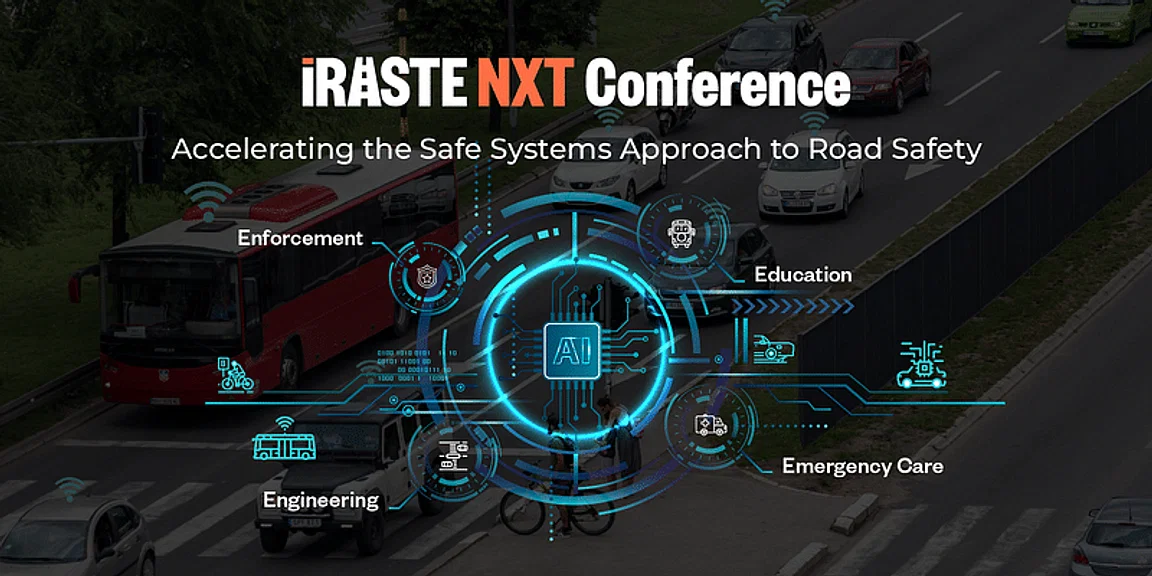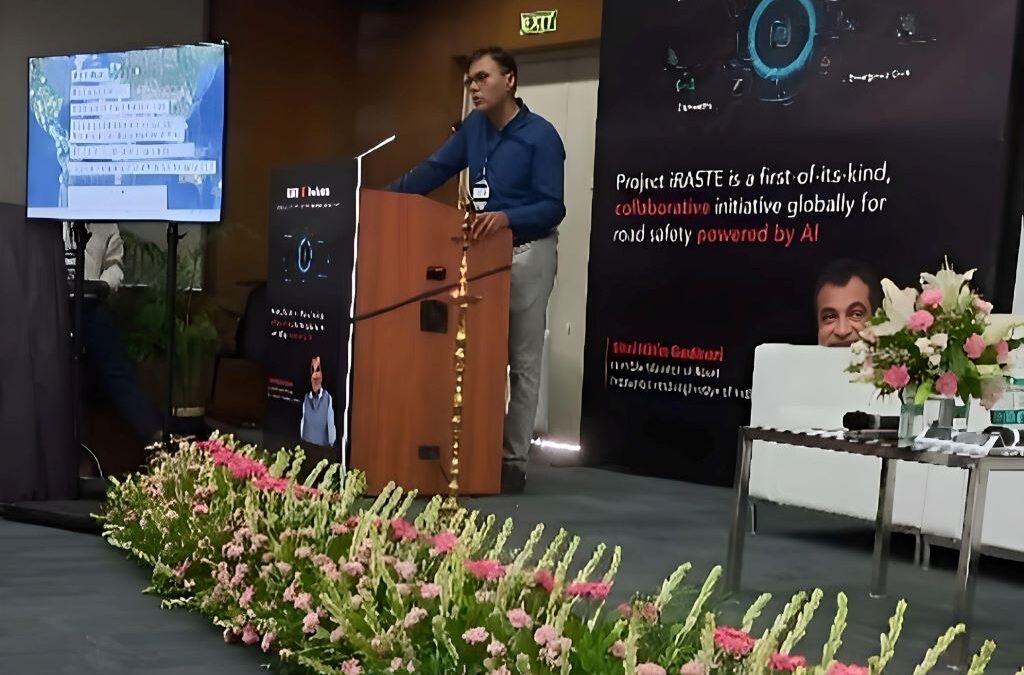IndiaRAP Technical Manager Jigesh Bhavsar shared the life-saving potential of AiRAP at the iRASTE NXT Conference last week. The event is India’s premier technology-for-road-safety conference demonstrating the proven effectiveness of AI-based systems.
Launched in 2021, Project iRASTE (intelligent Solutions for Road Safety through Technology and Engineering) is a first-of-its-kind global initiative to upgrade the 4E framework for Road Safety – Engineering, Education, Enforcement, and Emergency Care – by leveraging AI and Data Analytics. It is a unique collaborative initiative between India’s government, industry, and academia and works with three key vectors – vehicle safety, mobility analysis and road infrastructure safety.
AiRAP stands for the ‘accelerated and intelligent’ capture of road safety-related data using automatic, repeatable and scalable methods to support road safety assessment, crash risk mapping and investment prioritisation for all road users. World-first projects in Australia, Vietnam, USA and Brazil are piloting the application of existing and emerging data sources globally, including advances in artificial intelligence, machine learning, vision systems, LIDAR and telematics. AiRAP accreditation is ensuring the data meets the iRAP global standard already in use worldwide for the recording of road features that impact road safety.
India is building roads at a record rate. According to a recent statement by Shri Nitin Gadkari, Honourable Minister of Road Transport and Highways, the country’s national highway network will grow by 37% in the next two years. However, every year, 1.5 lakh lives are also lost on India’s roads.
IndiaRAP and its partners are working with government, development banks, industry, mobility clubs and road safety NGOs to provide the tools, training and support to ensure those new and existing roads are built and maintained with maximised safety for pedestrians, bicyclists, motorcyclists and vehicle occupants.
AiRAP has enormous potential to streamline road safety data capture and benchmark the safety of India’s roads to inform strategic investment on the highest risk road sections to save the greatest number of lives and serious injuries.
Achieving Target 4 in India – for more than 75% of travel to be on the equivalent of 3-star or better roads for all road users by 2030 – stands to prevent more than 22 million deaths and serious injuries over the 20 year life of road treatments with an economic benefit of USD$802 billion.
The conference, held on 24 July in New Delhi, included marquee presentations on notable international technology projects, the release of iRASTE results, expert panels and a roundtable on the path forward for turning insights and data from projects like iRASTE into policy recommendations.
Shri Nitin Gadkari addressed the event and both Jigesh and Dr Subhamay Gangopadhyay, former IndiaRAP Programme Manager, participated in the programme.


















